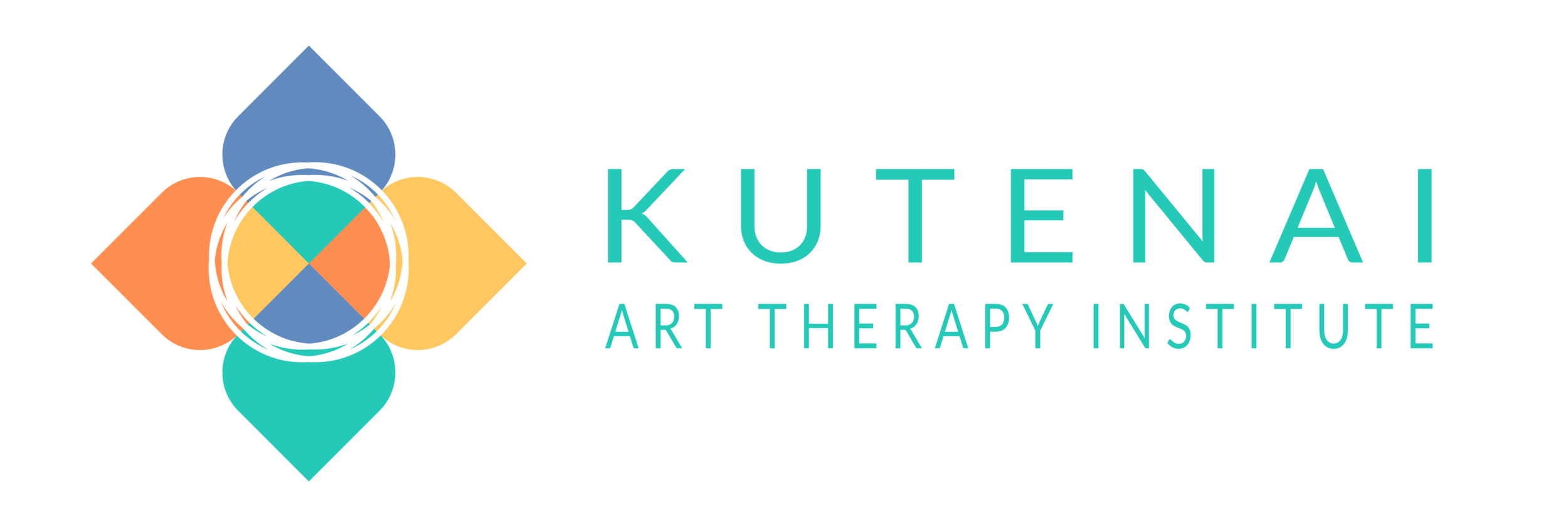For over 25 years, Kutenai Art Therapy Institute (KATI) has been providing art-making opportunities for the local community, cultivating a space of collective care and support.
Every year, KATI offers thousands of hours of free or by donation art therapy services to people of all ages with a wide range of concerns. KATI hosts weekly Open Studios for the community.
Since the Institute’s inception, KATI has been funded by the Ministry of Child and Family Development to work with families, providing support to parents, adolescents and children.
”Art therapy provided a safe space for my children to express their feelings and talk. My children loved Art therapy so much, I think it helped them feel a sense of belonging”
“Art therapy and the client-led, trauma-informed practice provided allowed me to openly discuss my complex mental health issues, current and past trauma and find a creative way to heal”
”I have tried various therapists in the past and none have worked long term for me until I tried art therapy. I like that it is not just talking and that the art can start discussions and help with understanding my mental health”
Open Studios
Open studios are community spaces for people of all kinds to come together and make art. As a participant, you can decide to follow the provided project, weekly theme or to create spontaneous art. The choice is yours!
During the school year, regular open studios are held at KATI on Saturdays. Other open studios may be offered by student interns. See the calendar for dates and details.
Individual and Group Art Therapy Sessions
The Kutenai Art Therapy Institute offers group and individual art therapy sessions for children and adults. Our art therapy program students host these sessions as part of their clinical placement requirements. Each year KATI offers a variety of groups for children and adults, as well community service organizations.
Please call our office at 250-352-2264 if you are interested in participating in art therapy. There is currently a waiting list. Self-referrals are accepted. Adult clients are asked to donate on a sliding scale for art therapy services to cover art supplies, technology, or room costs. Recommended donation is $3/session.
Art for People
Art for People was created by two KATI graduates: Martine Bédard and Andy Holmes, and is an initiative overseen by KATI. Art for People continues to fundraise to support creative projects around the world.
Art for People Community Grants
These grants are intended to support creative community projects and to support groups or individuals doing grassroots community work. Projects attempting to promote individual and community well-being through the creative expressive arts will be considered.
Other criteria that will be considered are:
Projects that are planned with other community partners;
Cultural sensitivity to the community’s needs;
Projects that lay the groundwork for the potential of continued programming;
Creativity in breadth and depth;
Initiatives that incorporate art/craft making into establishing a marketable product for individuals and communities to achieve more sustainability;
Contributions to social change and justice through bringing art therapy to the global community.
Please note that grant money is available only for art supplies, program supplies and programming costs. Grant applications will be reviewed by the Art for People Projects committee. Grant applications take up to 30 days to process.
For more info about the Art for People Project visit www.artforpeople.ca
Guidelines for Electronic Practices in Art Therapy
In response to the growing demand for online access to therapeutic services, KATI faculty member, Nicole Le Bihan, was asked by KATI and KBCSC (Kootenay Boundary Community Services Cooperative) to create instructional material that would provide guidelines for electronic practices in art therapy. This guide is intended as a resource for counselors who use electronic methods of communication in their art therapy practice.
Please note that these guidelines are specific to therapists who are practicing in British Columbia, and that legal requirements may vary by province. It is the responsibility of each therapist to check with their own regulatory colleges and provincial privacy laws.



